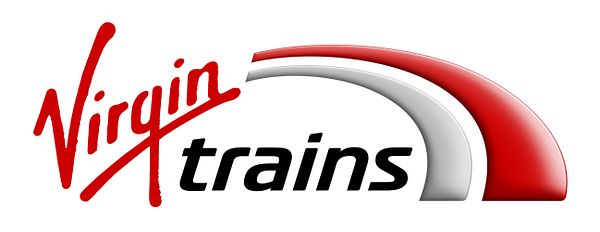Press release -
Virgin Trains welcomes Flying Scotsman and Royal Scot on return to Mainline
Virgin Trains welcomed two famous historical locomotives, the Flying Scotsman and the Royal Scot at two of its stations along the West Coast Mainline today.
Flying Scotsman, the first locomotive to reach 100mph in 1934, made its mainline test run to Carlisle, whilst Royal Scot began its first run on the mainline in 50 years at Crewe.
The Flying Scotsman hauled the Winter Cumbrian Mountain Express train on its journey from Carnforth to Carlisle, where it was met by the Virgin Trains station team and rail enthusiasts.
The Virgin Trains team at Crewe waved off passengers of the North Wales Coast Express train pulled by the Royal Scot, which steamed from Crewe to Holyhead, along the North Wales route.
Gary Iddon, General Manager at Virgin Trains, said: “It has been fantastic to play a part in this historical day to welcome back both the Flying Scotsman and the Royal Scot. Having the chance to see two legendary locomotives on the West Coast Mainline is something the Virgin Trains teams at Carlisle and Crewe will never forget. We had a great time greeting the lucky passengers at our stations.”
Jeremy Hosking, Chairman of The Royal Scot Trust, commenting on Royal Scot, said: “After 50 years away from the mainline at last we have the privilege of bringing this superb locomotive back to do the work she was designed to do. We are glad so many people came out to celebrate with us on the day.”
Nigel Dobbing, Managing Director of The Railway Touring Company, said: “Flying Scotsman is the sole survivor of Sir Nigel Greasley’s A3 class of locomotives and famous the world over so we are very excited that our ‘Winter Cumbrian Mountain Express’ day tour was chosen for the mainline test. It was also a great honour to have, on the same day, another great favourite, Royal Scot, making her mainline debut hauling our ‘North Wales Coast Express’.”
ENDS
Topics
- Transport
Categories
- routes & stations
- regional news
- trains
- west coast
About Virgin Trains
Virgin Trains is the brand name of Virgin Rail Group (VRG), which is owned by Virgin Group (51%) and Stagecoach (49%). Virgin Trains has operated the West Coast passenger train franchise since 1997, serving key UK cities including London, Birmingham, Manchester, Liverpool and Glasgow. In June 2014 the Department for Transport (DfT) awarded VRG a new franchise until at least April 2017.
Virgin Trains is committed to delivering a high speed, high frequency service, offering shorter journey times, more comfortable travel and excellent customer service. We provide the most frequent long-distance rail service in Europe (London - Manchester and London – Birmingham, both every 20 minutes).
Since 1997, Virgin Trains has introduced over 70 new trains at a cost of £1.5 billion. The service carries more than 34.5 million passengers a year and Virgin Trains employs approximately 3,290 staff.
Virgin Trains customers consistently rate the company as one of the top long-distance rail franchise operators in the National Passenger Survey (NPS) commissioned by industry watchdog “Passenger Focus”.
Visit the Virgin Trains Media Room - www.virgintrains.co.uk/mediaroom - for the latest news, images and videos. Subscribe here for regular news from Virgin Trains.
Press Office: 0845 000 3333. Company website: http://www.virgintrains.co.uk/.
About Virgin Trains East Coast
Virgin Trains East Coast is the brand name of InterCity Railways Ltd (ICR), which is owned by Stagecoach Group (90%) and Virgin Group (10%). Virgin Trains East Coast began operating services on the East Coast Main Line in March 2015, serving key UK cities including London, Peterborough, Doncaster, Leeds, York, Newcastle, Edinburgh, Aberdeen and Inverness. The franchise will last until at least 31 March 2023.
Visit the Virgin Trains East Coast Media Centre at: www.virgintrainseastcoast.com/media-centre for the latest news and images.
Flying Scotsman
Flying Scotsman’s return to the railways follows a decade long, £4.2m restoration project by the National Railway Museum.
As this is Flying Scotsman’s mainline test run for the famous loco will still be in its black undercoat and sporting its wartime numbers. Following the mainline test run, Flying Scotsman will return to the engineering workshop of Riley & son (E) Ltd, where the final two years of restoration work has been undertaken; there it will be transformed into its new BR green livery.
The National Railway Museum has a full programme of events featuring Flying Scotsman, including the February 25 inaugural run between London Kings Cross and York, which will be its first mainline run in full livery, and dates when it will been on display at its museums in York and Shildon Co. Durham, where admission is free.
Royal Scot
No. 46100 Royal Scot was built for London Midland and Scottish Railway in Glasgow in 1927 for use on express passenger trains, so is only a few years younger than Flying Scotsman. Today, Royal Scot is owned by the Royal Scot Trust, which aims to preserve and maintain steam locomotives for the enjoyment and education of the general public. London and North Western Railway Heritage, an organisation dedicated to the overhaul and restoration of steam locos and owned by the Royal Scot Trust, has been working over the last three years to restore Royal Scot to traffic.
The Railway Touring Company
The National Railway Museum
#Flying Scotsman
The Royal Scot Trust
